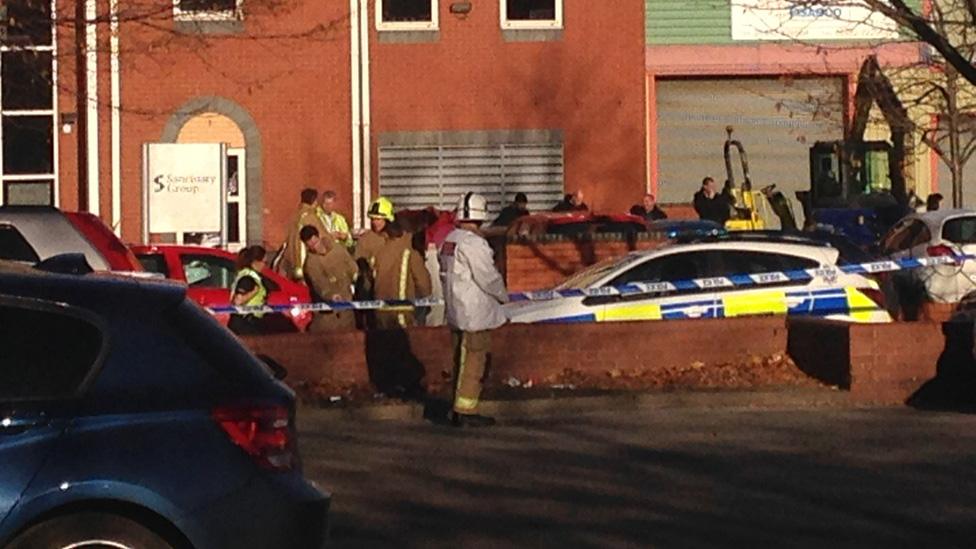Lewis Skelton inquest: Tasers 'had no effect' before man shot dead
- Published

Lewis Skelton died after he was shot by police who feared he "might have an intended target"
Armed officers shot and killed a man carrying an axe when Tasers failed to stop him, an inquest has heard.
Police feared Lewis Skelton, 31, was on his way to attack someone when he was seen walking "with purpose" in Hull.
Officers opened fire when the stun weapon had "no discernible effect" and Mr Skelton began moving towards a group of workmen, a jury was told.
Members of Mr Skelton's family told Hull Coroner's Court heard he had a history of mental health issues.
Opening the inquest, assistant coroner Oliver Longstaff told jurors Humberside Police received three 999 calls on 29 November 2016.
The reports described a man carrying an axe like a "hatchet", and though he had not threatened anyone police commanders feared he "might have an intended target".
Jurors would hear that armed officers were deployed and two found Mr Skelton, identified themselves and ordered him to stop and stand still, Mr Longstaff said.
He ignored them and, when he ran, both shouted warnings and discharged their Tasers "with no discernible effect", Mr Longstaff said.
As he jogged to another street and was seen approaching the workmen, one of the officers decided there was an immediate threat and discharged his firearm, a Glock pistol.
Mr Longstaff said the policeman stopped Mr Skelton with a second shot before both officers moved in to restrain him.
The coroner said jurors would hear that he had continued to struggle as police and paramedics tended to his injuries. He died in hospital from his injuries.

A police cordon was put in place at Charles Street in Hull city centre after the incident
In a pen-portrait read to the court, Mr Skelton's parents, Helen and Glen, described their son as a "kind man with a good heart" and said the events of 2016 had "deeply affected" their close-knit family.
Their son, a passionate Liverpool fan, had struggled with mental health problems, they said, and in a further, formal witness statement, Glen Skelton said Lewis had fallen in with the "wrong crowd" when he was 18 and started to take heroin.
A prison sentence in 2008 had left his son "broken", he said, and led to him developing psychosis.
One of Mr Skelton's three sisters, Laura, said in a statement that her brother was "not a typical addict" and remained kind-natured, never stealing to fund his drug-taking.
He had been sectioned twice due to his mental health problems, she said.
Ms Skelton said in her statement: "I do not believe that Lewis deserved to die.
"He needed help not killing."
The inquest, which is due to last for a number of weeks, continues.

Follow BBC East Yorkshire and Lincolnshire on Facebook, external, Twitter, external, and Instagram, external. Send your story ideas to yorkslincs.news@bbc.co.uk, external.
Related topics
- Published2 December 2016

- Published1 December 2016
